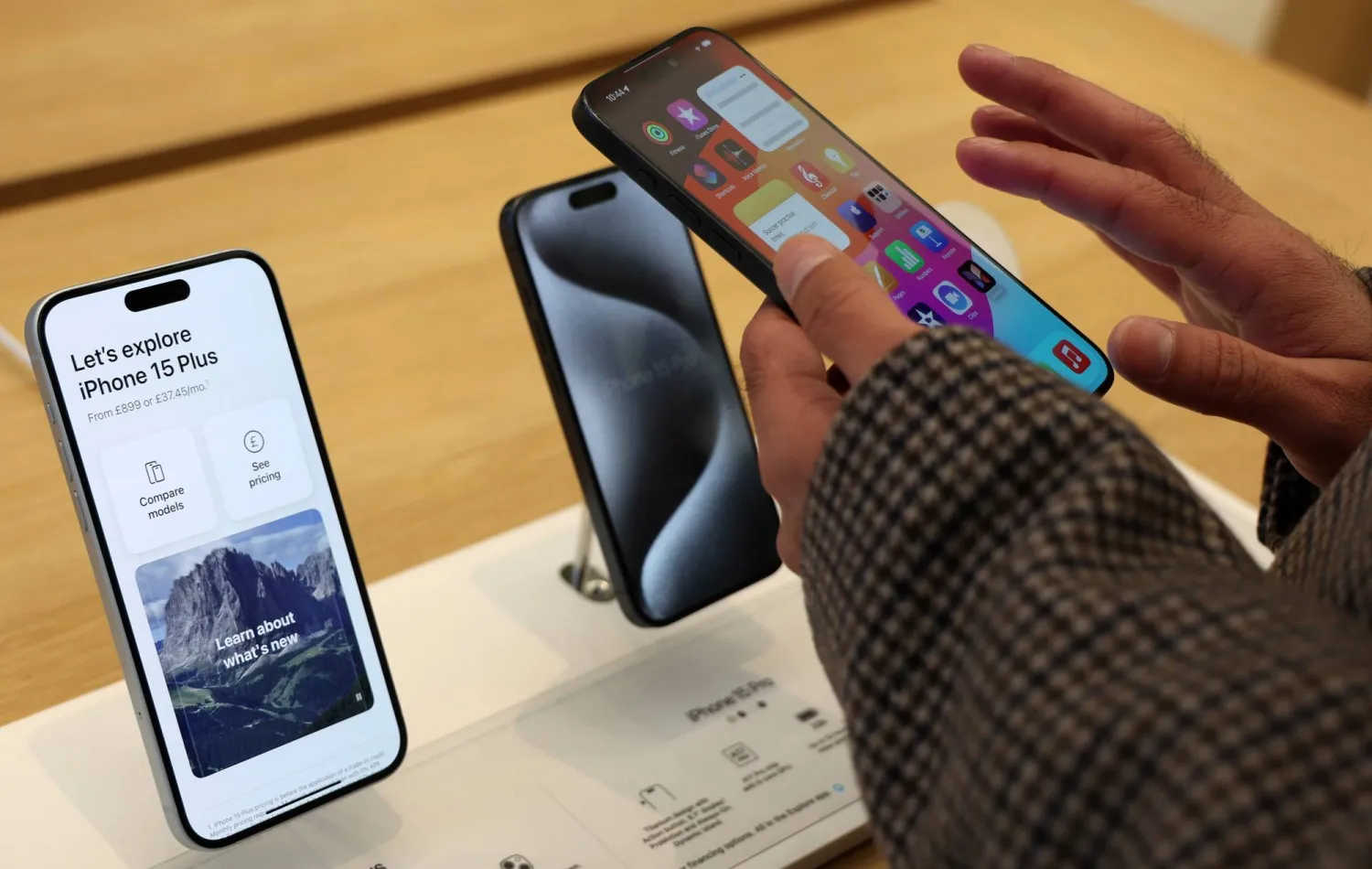Apple has unveiled a sweeping plan to tear down some of the competitive barriers that it has built around its lucrative iPhone franchise, but the new choices opening up to consumers and app developers will only be available within Europe to start.
The announcement Thursday comes as Apple moves to comply with upcoming European regulations aimed at giving consumers the choice to use alternative app stores and provide app developers with unprecedented avenues to avoid paying fees that have become a gold mine for the tech giant.
The overhaul, scheduled to take effect in early March, will include concessions that Apple had previously refused to make in its app store, including lowering the fees it collects from developers in Europe.
Most notably, Apple for the first time will allow iPhone users in Europe to use app stores other than the company-operated one that comes installed on the mobile device. It will also enable developers to offer alternative payment systems that could help them make more money while potentially lowering their prices.
But Apple says it fears opening up the iPhone to outsiders will also increase chances consumers venturing outside its proprietary system will be exposed to hackers and other security problems.
The Cupertino, California, company it is taking what it sees as a risky step only to comply with European rules known as the Digital Markets Act, or DMA, that take effect March 7. Apple promised to bundle all the complex changes into an iPhone software update — iOS 17.4 — that is scheduled to be released in 27 European Union countries in early March. A test version of that software update will first be distributed to app developers.
Falling into line with that EU mandate will bring “unavoidable increased privacy and security threats,” warned Phil Schiller, who oversees the Apple app store. "Our priority remains creating the best, most secure possible experience for our users in the EU and around the world.”
The revisions in Europe will decrease the 15% to 30% commission that Apple plans to continue charging throughout the rest of the world on in-app transactions completed on the iPhone. The DMA will ban Apple from imposing a 30% commission in Europe once it takes effect.
So in Europe only, Apple is dropping its commission on in-app transactions to 10% to 17% for developers who opt to stay within the company's payment-processing system. Apple won't collect any commissions on in-app transactions completed through alternative payment systems.
That is a stark contrast to how Apple is complying with a court ruling that took effect last week requiring it to allow iPhone apps to provide links to different payment options in the US If an in-app transaction is completed outside the Apple system in the US, the company plans to collect commissions from 12% to 27% to prevent freeloading on its iPhone software.
Apple will continue to charge 15% to 30% on in app-transaction done through its payment system in the US.
Those in-app commissions are a major money maker for Apple's services division, which in recent years has been among the company's fastest-growing segments. In Apple's last fiscal year, the services division generated $85 billion in revenue, making it the company's second biggest segment behind sales of the iPhone itself.
Although Apple isn't planning to charge for in-app transactions outside its payment system in Europe, it will introduce a “core technology fee” for installing apps on the iPhone. That fee will also apply to alternative app stores that are downloaded onto the iPhone after being reviewed and authorized by Apple.
That review process and other steps that Apple says it is adopting in Europe provoked ridicule from one of the company's most outspoken critics, Epic Games CEO Tim Sweeney, whose company makes the popular video game Fortnite. Sweeney described Apple's revisions in Europe as “a devious new instance of malicious compliance” in a Thursday post on social media.
Epic took Apple to trial in 2021 in a fight over the iPhone commission system in the US Although Apple prevailed on most claims in that legal showdown, it resulted in the ruling that spurred the recent adjustments to the iPhone app payment-processing system in the US.
It's still far too early to tell how all these changes in Europe might affect Apple's revenue, but investors didn't appear worried about it leaving too much of a dent. Apple's shares barely budged in Thursday's afternoon trading after the news came out.
Apple's changes to its iPhone app commission structure in Europe conceivably could embolden regulators and lawmakers in the US and other major markets to push for similar decreases.
Spotify, the world's largest music streaming service and an Apple competitor, is already vowing to fight for changes in markets outside Europe, where it says it believes consumers will benefit from more freedom.
“If you live outside certain markets, you will continue to encounter frustrating roadblocks because of Apple’s ridiculous rules,” Spotify said in a blog post. “That’s why developers everywhere are continuing to ask other governments to pass their own laws like the DMA.”
In addition to overhauling its iPhone app store in Europe, Apple will also make it easier for consumers to switch to different default options besides its own Safari browser to comply with the upcoming regulations.
Apple Will Open iPhone to Alternative App Stores, Lower Fees in Europe to Comply with Regulations

iPhones at an Apple store in London, Britain, 09 January 2024. EPA/ANDY RAIN

Apple Will Open iPhone to Alternative App Stores, Lower Fees in Europe to Comply with Regulations

iPhones at an Apple store in London, Britain, 09 January 2024. EPA/ANDY RAIN
لم تشترك بعد
انشئ حساباً خاصاً بك لتحصل على أخبار مخصصة لك ولتتمتع بخاصية حفظ المقالات وتتلقى نشراتنا البريدية المتنوعة







